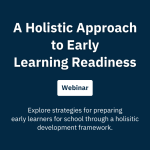Empowering Learners for Social Change and Civic Engagement Using Digital Technology
Whenever I talk about young people, politics, civic action, and the internet, I always find some version of the common misconceptions about youth and social change.
1. Youth are not politically engaged.
While some youth are not yet of voting age or disengaged from electoral or traditional politics, it is not true that they are not civically engaged. Young people are very passionate about “issue politics.” They are extremely active in digital spaces. They engage in diverse political practices like blogging, petitioning, mobilizing using social media, and raising awareness about issues that matter to them.
Youth Are Organizing for Social Change
For example, in 2015, grade eight students Tessa Hill and Lia Valente launched a petition on change.org to include consent in the Ontario elementary health education curriculum. The petition gathered over 40,000 signatures. The teenagers met with Premier Kathleen Wynne when the provincial government decided to change the curriculum to include consent.
2. Youth are emerging leaders. Youth will lead sometime in the future when they are ready.
Writer Donna Lesko refers to an “ideology of emergence” common in conversations about teenagers. This ideology says that youth are training to be leaders of tomorrow. It says that only adults can be leaders. It says that the contributions of youth are not as meaningful as the contributions of adults.
Youth Are Leading Social Change
Can you imagine if Craig Keilburger or Malala Yousafzai believed they were not old enough to try and change the inequity they saw in the world? In his first speech after being elected Canadian Prime Minister, Justin Trudeau addressed not world leaders or Canadian politicians but 16,000 young activists at a We Day event in Ottawa. The Prime Minister told the youth, “I don’t want you guys to think of yourself as leaders of tomorrow. This is about you being leaders today.”
Youth and Social Change
As educators, we might ask how to support our learners in becoming today’s leaders. One way is to be knowledgeable about the many ways in which young people are trying to change the world right now using digital technology. Many youths are part of social justice organizations supporting youth leadership initiatives. These impact the world and address important issues to young people. Many of these organizations already have an active presence in schools. They provide safe and supportive digital spaces for young activists to learn and become inspired.
Fandom Forward
Fandom Forward has mobilized millions of young people to engage in social justice initiatives ranging from book donations and fundraising for Haiti earthquake survivors to supporting fair trade and net neutrality. The organization has an online program and chapters worldwide in schools and other learning spaces.
Freechild Institute for Youth and Social Change
The mission of Freechild is to support critical democratic engagement in all young people. For educators, Freechild offers resources and the possibility of connecting learners to a large social justice network.
Born This Way Foundation
The Born This Way Foundation is a research organization that supports youth empowerment in enacting change in the world. In particular, it supports marginalized youth and builds anti-bullying awareness by sharing youth stories through artistic projects and a travelling bus tour.
TakingITGlobal
TakingITGlobal (TIG) has over 500,000 members and 2,000 youth-led initiatives worldwide. It has an enormous database of lessons, resources, games, creative projects and real-world projects on poverty and the environment. They also provide scholarships and mentoring to young activists. TIG affiliates include powerful social justice organizations like the United Nations. It has a comprehensive education section, TIGed, designed for schools. It includes virtual classrooms, professional development, and global networks to help educators support their learners in social justice action.
ME to WE
We Day attracts hundreds of thousands of young activists. They all have to earn their ticket into the event through social justice change actions in ME to WE programs.
Consider bringing some of these programs into your classroom. Use them as part of your digital citizenship, social sciences, character education, or literacy curriculum. Provide the mentoring, resources, and critical understanding learners need to become active, ethical global citizens.








